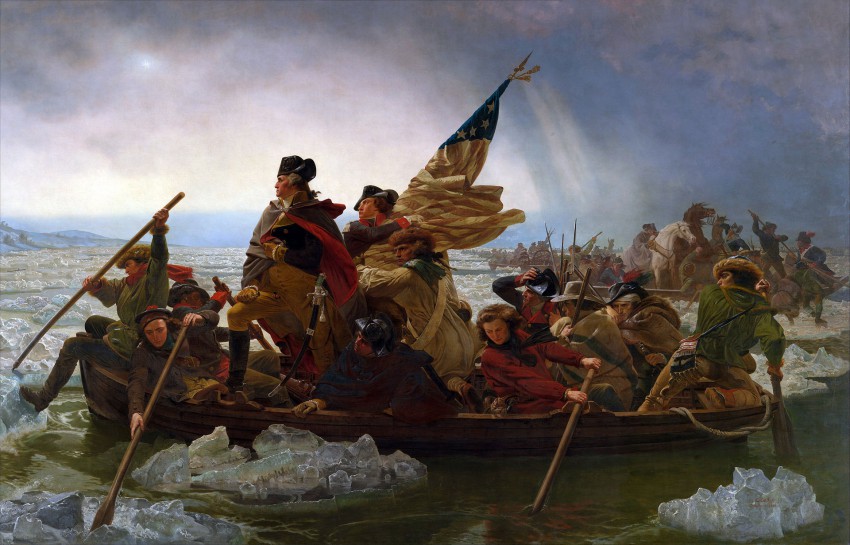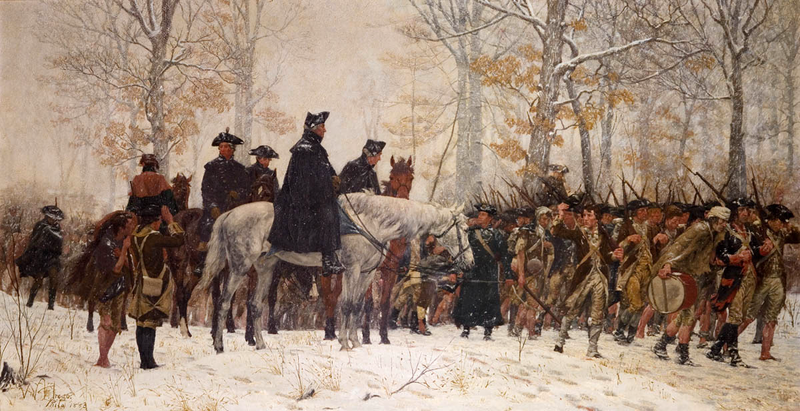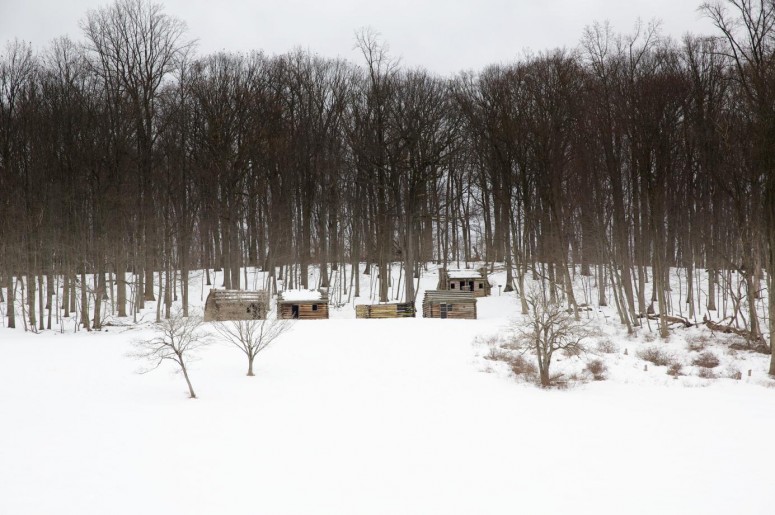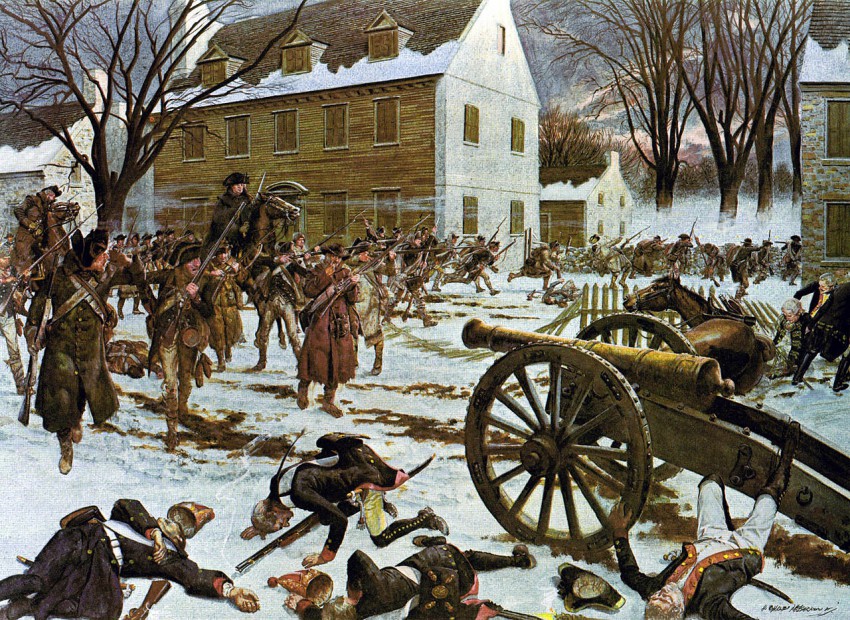It’s been 241 years since the ‘shot heard around the world’ rang out on April 19, 1775 in Concord, Massachusetts, setting off the American Revolution. The armed rebellion that pitted angry colonists against the ruling British Empire would continue for the next eight years. When the smoke settled, the colonies had their independence from Britain, and the United States of America was born. But the U.S. almost never came to existence. Not only were there strategic blunders made by the Americans, but there was also the weather. In fact, there were several winters that almost destroyed the American’s Continental Army. MORECAST recaps the critical moments where colonists had to battle both the British and the elements.
Delaware River Crossing: December 1776

The Continental Army, commanded by General George Washington, was struggling going into the winter of 1776. Washington and his troops had suffered a major defeat earlier in the year in New York, and had been chased westward into Pennsylvania. Encamped there for the winter with morale quickly fading, Washington decided to make a surprise attack on Trenton, New Jersey in late December, where Hessian mercernaries fighting for the British were stationed. Winter fighting was rare, and this unusual winter attack required Washington to move a couple thousand of his men across the Delaware River under the cover of darkness on Christmas night. Crossing the river was a challenging feat by itself, but made even more difficult by Mother Nature. A strong storm that night brought rain, sleet, snow and gusty winds, and the soldiers also had to dodge large chunks of ice floating down the river. The foul weather caused the crossing to take several hours longer than planned, but Washington’s troops still managed to make it across before sunrise the next day. In spite of the weather, colonists were able to complete the surprise attack, scoring a morale boosting victory in Trenton. The death toll for the Americans was only in the single digits, with more men dying from hypothermia than the actual battle itself.
Valley Forge, Pennsylvania: Winter of 1777-1778

Arguably the most famous example of weather impacting the Revolutionary War. There was nothing unusual about the winter of 1777-78 in Valley Forge, Pennsylvania, where the Continental Army set up camp. But the 11,000-man army was wholly unprepared, with a lack of proper clothing, shelter and food to survive the cold. In fact, several thousand of the men didn’t even have shoes to wear. Additionally, a series of small snowstorms occurred where the snow melted quickly after falling, leaving the grounds wet and muddy, allowing disease to spread throughout the camp. As a result of the harsh conditions, more than 2,000 Americans died in Valley Forge that winter from disease and exposure, with several thousand more becoming ill.
Morristown, New Jersey: Winter of 1779-1780

Four years into the war, the Continental Army was forced to survive through one of the harshest winters of the 18th century, with extreme cold and snow taking a toll on the army’s winter camp in Morristown. At least 28 snowmaking storms were reported that season, making it extremely difficult to get much needed supplies to the ailing troops, who also struggled building and maintaining shelters in the feet of snow that piled up in their camp. General Washington wrote to a French military officer,”The oldest people now living in this Country do not remember so hard a Winter as the one we are now emerging from. In a word, the severity of the frost exceeded anything of the kind that had ever been experienced in this climate before.”
Conditions were so bad that several regiments quit, leaving Washington to wonder if their battle for independence was nearing an end. But enough soldiers stayed and survived through the brutal winter to continue the fight the following year.
In the end, with help from the French, the American colonists were able to prevail over the British, officially gaining independence in 1783. But it’s interesting to note how some harsh winter weather almost changed the course of world history on multiple occasions.
